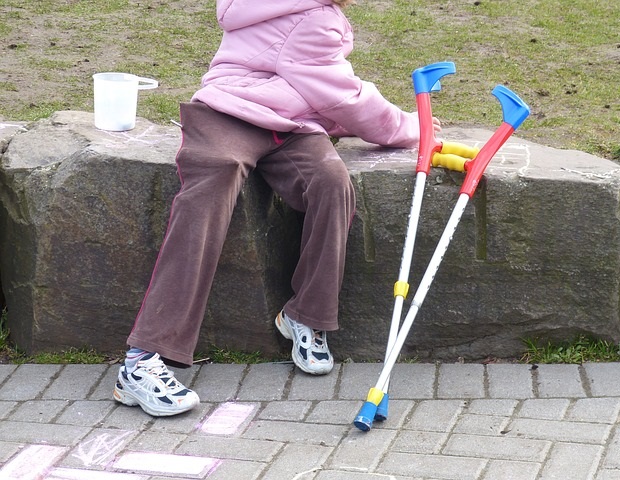The EESC high-level conference held in Budapest urged the new European Commission and the EU Member States to develop a comprehensive policy framework, setting common and measurable objectives to address the rare disease pathway and further increase European cooperation.
The European Economic and Social Committee (EESC) calls on the new European Commission and the EU Member States to propose and implement a comprehensive European Action Plan on Rare Diseases which supports Member States and civil society organizations in their efforts to provide equal, affordable and high-quality access to diagnosis and treatment for patients with rare diseases.
This conclusion was endorsed at the conference entitled For an EU commitment to tackling rare diseases held by the EESC in Budapest on 29 November 2024, where the EESC exploratory opinion entitled Leaving No One Behind: European Commitment to Tackling Rare Diseases was presented; it had been drawn up at the request of the Hungarian Presidency of the Council of the European Union.
Following on from the previous EESC conferences on the subject, held in Bilbao in 2023 and in Brussels earlier this year, the EESC is pressing the EU and its Member States to support and enhance the implementation and monitoring of national plans on rare diseases. Objective: to enable the diagnosis of rare disease patients within one year, promote neonatal screening programmes and ensure the financial sustainability of the European Reference Network (ERN) system beyond the current grants from the EU4Health programme.
A call for urgent action
More specifically, there are three areas of focus:
1) A comprehensive European Action Plan on rare diseases should be put in place by 2030
The EESC welcomes the Council conclusions on the Future of the Health Union approved in June 2024 and the call of the Council for Employment, Social Affairs, Health and Consumer Policy (EPSCO) inviting Member States and the European Commission to develop a European Action Plan on Rare Diseases. Here, it is vital to involve civil society and patient organizations, practitioners, researchers, national authorities, hospitals and the ERN on rare diseases.
2) Civil society and patient organizations must join forces to improve the health and social situation of people living with rare diseases
The EESC has worked with civil society and patient organizations to ensure strong European solidarity for patients with rare diseases and their families in order to advance a common rare-disease policy with measurable objectives at EU level. It is essential to integrate healthcare and social services for rare disease patients and to recognize their disability, so that they can receive adequate support that allows them to live independently.
3) The European Health Data Space (EHDS) is making progress but there are still many challenges ahead
The EESC is asking the European Commission to support and implement a pilot project on a common European methodology and model for data interoperability for secondary use within the framework of the EHDS regulation and to facilitate data sharing for primary use between accredited medical teams and ERN members.
High-level speakers
The conference, whose detailed conclusions will be presented at the EPSCO Council in December 2024, saw the participation of leading experts.
We strongly believe at the EESC that a European Action Plan on rare diseases should be put forward by the European Commission in the form of a Communication, to ensure that joint EU efforts allow patients to have access to diagnosis within one year, as well as comprehensive life-long care, regardless of where a patient lives in the EU.’
Baiba Miltoviča, President of the Section for Transport, Energy, Infrastructure and the Information Society, EESC
The EESC has received clear support from the Hungarian Presidency and previous EU Presidencies to push forward a common policy on rare diseases at EU level to provide equal, affordable and high‑quality access to diagnosis and treatment for rare disease patients. Our Committee has worked hand in hand with civil society organizations to ensure strong European solidarity for patients and their families.’
Ágnes Cser, EESC member, rapporteur for the EESC opinion Leaving No One Behind: European Commitment to Tackling Rare Diseases
It is important to recognize that there is still much to be done to find a satisfactory solution to the problem of rare diseases, but it is equally important to say that with the projects we have launched, the new structures we have put in place and the strategic objectives we are defining more and more clearly, we are firmly on the right track towards finding solutions. I believe that the EESC’s professional opinion and today’s conference are important milestones in this work.’
Péter Takács, State Secretary for Health, Hungary
Today, I reaffirm Spain’s commitment to rare diseases. Our challenge is to reduce the average time to diagnosis to under one year and to promote research into new treatments, as only 5% of rare diseases currently have recognized treatment. To achieve this, we need national networks, genetic testing and new-born screening, while removing the barriers that families face every day, [which] carry a heavy emotional and social burden.’
Mónica García Gómez, Minister for Health, Spain
A European Action Plan would foster collaboration, ensuring we move beyond isolated efforts and instead build a networked approach that can efficiently address the rare disease pathway. Let us take this opportunity to lead the way in rare disease policy, creating a Europe that upholds care, compassion and cooperation. Together, we can create a framework that meets the needs of every rare disease patient, bringing hope and progress to millions.’
Tomislav Sokol, Member of the European Parliament
Source link : News-Medica

